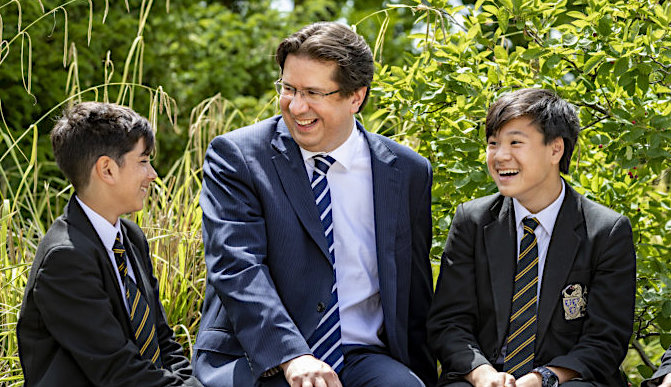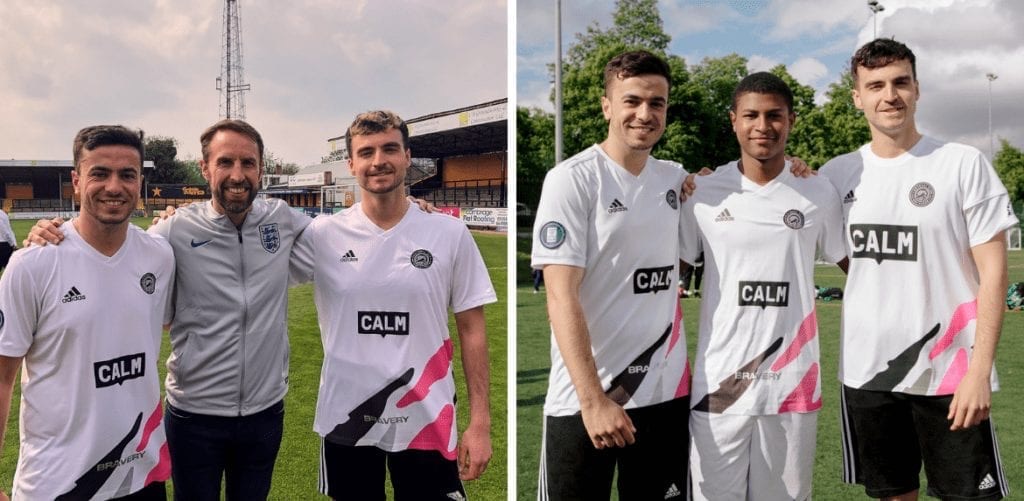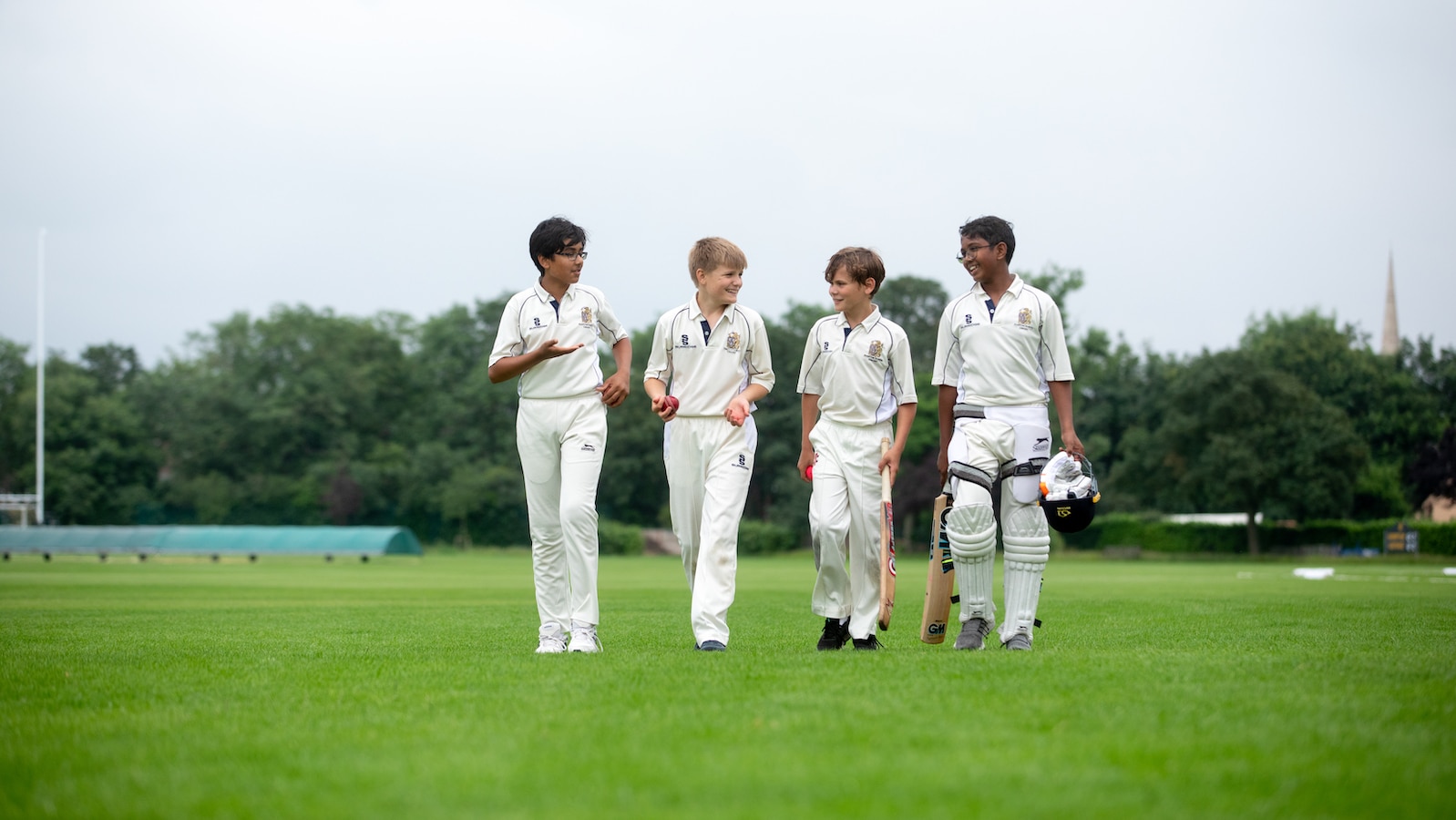First published in 2019 for Hampton Sports Chronicle: Matt Legg OH (2015) talks about his own battle with mental illness and how he is now using football to fight the male mental health battle.
By Josh Bartholomew
Matt Legg was 20, about to start his second year at the University of Bath having spent a gap year travelling the world. He was working as an au-pair in Spain, earning money for the year ahead. You can picture the scene: the susurrus Mediterranean landscape chirping, the palm trees blowing in the wind.
It’s not, however, where you’d expect a young man to be physically struggling to get on a plane, to be fighting against his mind, to reach his lowest ebb. But that’s the situation Matt found himself in. It was his lowest point in a six-month battle against depression. “It was horrible. I was in Spain for a month, but I was hardly sleeping and I couldn’t get on the plane,” he admits with remarkable candour.
“I just sat there and thought: ‘I don’t know what’s going on.’ I didn’t want to get out of bed, didn’t want to eat, didn’t want to shower. I knew I couldn’t go back to university, and that made me realise that something was very, very, very wrong.”
Today, Matt thankfully, has come through his depression and has started the football charity FC Not Alone, which has so far raised over £20,000 for CALM (Campaign Against Living Miserably). But first, he wants to talk – he wants to raise awareness.
A common misconception of mental illness is that it comes from nowhere; the brutal reality, however, is that it’s often the descendant of years of insidious building. In Matt’s case, it was no different. “I kind of had little spells in my A-Level year, towards the end of my time at Hampton, but I managed to get to the first year of university.
“At uni, I had no idea what was going on. There was no trigger, no anything. I just started to feel more and more numb. I didn’t know what was going on, I didn’t open up to my family, I just put on a brave face. It got really, really bad, to the point where I couldn’t speak or concentrate.”
Having left university and been diagnosed as having depression and severe anxiety, Matt, with the help of his family, sought to find an effective treatment. But a finding a ‘cure’, he says, is far from simple. “I got treatment from specialists and I was just trying to find the right combination of medication and treatment, which is an arduous process and it feels really long.
“That was the scariest period for everyone involved because you’re getting treatment, and then it’s not working, so you lose any hope. Finally, I had a breakthrough in January 2018 and I was pretty much back to being well in about two months – it was a really, really quick turnaround and I’ve been better since.”
The admission of losing hope is a deeply sobering one. What happens when you lose hope? Where do you go from there? “That’s where the danger comes in. You’re very tired and lethargic, and when depression becomes severe, suicidal thoughts become a symptom, because you start losing pleasure in everything you have.”
‘Did you have suicidal thoughts’, I ask, and Matt’s demeanour immediately, understandably, darkens as he recalls. “Yes, I did,” he responds. “Especially when I had to leave university because nothing was really getting better. Anyone with depression experiences suicidal thoughts – that’s not to say it’s a serious thing, but their thought-patterns change towards it.
“The most important thing is that you tell someone about those thoughts, even though it feels like the worst thing you can tell anyone. I think the worst thing families feel when they lose someone is: why didn’t they tell me? It’s a tough subject to bring up, but it’s better than never saying anything, never getting help and then taking that irreversible step of taking your own life.”
It’s a conversation that is difficult to even comprehend having, and Matt’s description of it is very moving. “It’s the hardest thing in the world because you don’t want your parents to feel like they’ve done a bad job. It’s just like openly admitting that you’re not finding much worth in life.
“I spoke to a trained specialist first, and they started the conversation with my family. They knew that it’s a symptom of depression, but it’s a really hard conversation – not one I regret having, though.”
Having been ‘healthy’ – as he puts it – for over 18 months now, Matt has returned to uni and can look back on the time when he was suffering with depression. Is he proud of getting through it? Does he think it’ll return? “I have no shame of it. It’s still scary because it was such a bad period of my life and my family’s life. When someone suffers from depression, it’s not their fault, but it affects everyone. “It gets less scary every time I think about the period. I’m proud to have got through it, I’m lucky to have got through it, and I’m proud of all the stuff I’ve done since to help other people get through it.”
It’s the single biggest killer of men under 45 in the UK, yet male suicide is still an unfathomably ‘taboo’ topic – something which Matt is seeking to change as FC Not Alone rises and rises towards prominence. “When I wasn’t well, I completely stopped doing what I loved. Football was my biggest passion, and suddenly when I left uni, I wasn’t playing and I wasn’t part of anything.
“When I didn’t want to see anyone or speak to anyone my cousin persuaded me to go down to a FootyAddicts session. I played a couple of times, and it just gave me a bit of hope that I could get through it. Before I’d thought that I’d never play again because I was so lethargic.
“It just gave me a break from everything that was going on, because my life was falling apart: I was out of uni, I was struggling to maintain my relationship with my girlfriend and friends. But for that hour, I had football, and that was my only focus; it was a really good release for me. As soon as I started to get better, I used football to increase my confidence.”
On March 26 2018, 84 statues were placed on the edge of London buildings, alone, to symbolise the perturbing statistic that 84 men take their own life each week. It was the springboard for FC Not Alone. “My cousin (Ian) and I thought we should do something to help this, so we set up a football tournament; we called it FC Not Alone because when I was going through my depression, I didn’t know any other men going through something similar, I didn’t know anyone my age going through something similar – you feel really alone. It’s one of the worst feelings.
“It seemed like quite an obvious idea for people feeling like that to be able to join a community and not feel so alone. If 84 people a week are taking their own lives, then the number of people attempting to will be a fair bit higher.”
Matt and Ian decided to plan a football tournament in London for later in 2018, but first, the Old Hamptonian had to share his story. It was, he recalls, a nerve-wracking event. “I posted my story online and, because you never know how people will react, I was really nervous. But as soon as I put it out, I got loads of messages from people saying that they knew someone who’d been through something similar.
“The number of people wanting to be a part of the tournament and FC Not Alone, wanting to raise money and awareness, was breathtaking. The reaction from everyone was incredible.”
The first edition of FC Not Alone took place in June 2018, amid the World Cup and England’s football frenzy. Matt and Ian’s philanthropy soon gained awareness, and the pair quickly became a part of the FA’s Heads Together campaign, a season-long initiative trying to change the way people view mental health. “We were then part of the advert, which is probably the best thing I’ve been a part of. Within that, we met Gareth Southgate, I spoke to Prince William about what I’d been through and what we’d done.”
The campaign is gathering pace. FC Not Alone were in the Community Shield programme, and awareness of Britain’s mental health problem is slowly improving. Whether it’s successful or not, however, is another question. “I think it has a really good chance of changing the way people think about and speak about mental health,” Matt says.
“The way people treat others who are struggling with mental health, the language they use, all needs to change. I think the main aim is just trying to equate mental and physical health. If it’s going to happen, this campaign has a very good chance of doing it.
“You’ve got two of the most powerful bodies in the country leading this initiative with a seemingly unlimited budget. It’s going to be pushed in international matches, in the school curriculum, at the grassroots level. It’s got a wide audience.
“I think they’re trying to reach the men who feel too proud to speak up and therefore go down a very dark road which could lead to them taking their lives. They’re the people that the FA are trying to get through to.”
FC Not Alone’s football tournament took place again in 2019, and this time, they had a few players on a slightly different plane to the rest. “This year I played in the tournament and someone came over to me and said: ‘Rhian Brewster’s here.’ I thought it was pretty unlikely, but I went over and there was Brewster and some other Liverpool academy players.
“The first year, it got on the news through the novelty of it, but with Brewster coming it allowed us to continue getting publicity. It was mad in the days after it, seeing him tweet a picture of with #MentalHealthMatters, and below that was a picture of him running onto the pitch after winning the Champions League.”
Matt has returned to university, started playing football again, and continues to run FC Not Alone with Ian. And it feels as if something’s changing. But what is driving him? “I’m very proud of the fact that we’ve started conversations about this topic so that people will get help way before I did. Also, raising money for CALM, who run a helpline from 5 pm until midnight every day. They really do save lives, giving people the help they need.”
That’s the crux of it. Helping people. And if everyone helped people like Matt and Ian, perhaps the 84 men would become 83, and the 83 would become 82. And perhaps eventually the 82 would be far, far lower.
Back to All Articles








